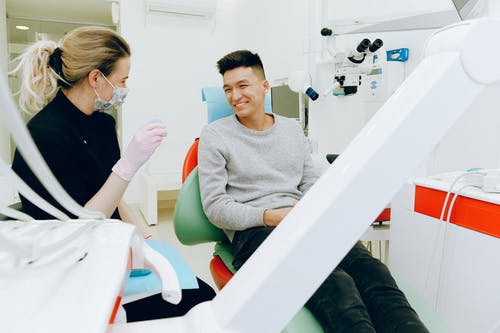How Often Should You Get a Dental Cleaning Done?

Maintaining a bright smile is more than just a confidence booster; it’s a crucial part of your overall health. Dental cleanings are a necessity, not a luxury, and understanding their importance is the first step to a healthier, happier mouth.
Professional dental cleaning is a routine procedure that involves removing plaque and tartar from your teeth, ensuring your gums and teeth stay healthy. But how often should you schedule these cleanings to ensure optimal oral health?
General Recommendations for Dental Cleanings
Dental associations worldwide tout the benefits of regular dental checkups and cleanings. Typically, it’s recommended to visit your dentist for a cleaning every six months. However, this is not a one-size-fits-all schedule. Several factors can influence how often you should have your teeth professionally cleaned:
- Your oral hygiene habits
- Your genetic predisposition for dental problems
- Whether you have any gum disease or other oral health issues.
Individual Factors Affecting Dental Cleaning Frequency
- Age: Children may need more frequent cleanings to encourage long-term oral health, whereas adults with good oral hygiene might require less.
- Personal oral hygiene: If you’re diligent about brushing and flossing, you might not need cleanings as often as someone who is not as thorough.
- Risk factors for dental diseases: Smokers, diabetics, and people with heart disease might need more frequent dental care.
Balancing Oral Health and Professional Care
While brushing and flossing at home is vital, professional cleanings play an essential role in keeping your mouth healthy. Here’s the crux of it:
- They reach areas of the mouth that ordinary brushing can’t.
- Dental professionals can detect early signs of problems that you may not be aware of.
Benefits of Regular Dental Cleanings
Consistent dental cleanings can help to:
- Prevent gum disease
- Ensure early detection of oral health problems
Understanding Periodontal Disease and Cleaning Frequency
Periodontal disease, also known as gum disease, can be sneaky and destructive. It’s an infection of the tissues that hold your teeth in place, and it’s often painless until it becomes severe. Those with periodontal disease usually require more frequent cleanings.
Tailored Cleaning Schedules for Periodontal Patients
- Maintenance post-treatment is crucial and may necessitate cleanings every three to four months.
- Deep cleaning procedures like scaling and root planing are often required before routine cleanings are re-established.
Dental Cleaning for Children and Adolescents
Young ones are not immune to dental problems. In fact, establishing good dental practices, including regular cleanings, is especially important for children and adolescents:
- A pediatric dentist can provide specialized care tailored to young, developing teeth.
- The frequency of cleanings for children can vary based on individual needs and habits.
Special Considerations for Different People
Some individuals may have specific circumstances that require special consideration:
- Pregnant women: Due to hormonal changes and increased risk of periodontal disease, more frequent cleanings might be recommended.
- People with diabetes: Because diabetes can impact gum health, people with this condition may need extra dental care.
- Smokers: Smoking increases the risk of gum disease, so smokers might need to have cleanings more often to combat the additional risk.
The Consequences of Skipping Dental Cleanings
Skipping dental cleanings can have more serious repercussions than just bad breath. Neglect can lead to:
- Tooth decay and gum disease
- An impact on overall health, including heart disease and diabetes
Recognizing the Signs That You Need a Dental Cleaning Sooner
If you notice any of these symptoms, it might be time to schedule a cleaning:
- Red, swollen, or tender gums
- Visible buildup of plaque or tartar
Advancements and Technology in Dental Cleaning
Today’s dental cleanings benefit from technological advances that make them more effective than ever. These technologies help to identify problem areas more quickly and provide a much more comfortable experience for patients.
Dental Team and Oral Surgery
When oral surgery is on the horizon, a skilled dental team becomes invaluable. The meticulousness of oral hygiene before and after surgery is imperative for healing and prevention of complications. For those considering such procedures and wishing to learn more about preparatory steps and post-operative care, quick online research can offer valuable insights.
Just visit website pages of reputable dental clinics for detailed information on what to expect from your dental team during oral surgery.
Dental Exams and Cleaning
For residents in certain areas looking for comprehensive dental exams and cleanings, a service like Harrisonburg Professional Teeth Cleaning can provide all the necessary care to maintain oral health.
With a focus on preventing dental issues before they start, such professional cleanings are the cornerstone of dental care, making them essential for anyone serious about maintaining their oral health.
Cost of Invisalign
When considering the cost of orthodontic treatments like Invisalign, it’s essential to understand all the factors that contribute to the total expenditure. The Invisalign retainers cost can vary based on the complexity of alignment issues, the duration of treatment, and the specific dental provider chosen.
An investment in Invisalign is an investment in your smile and dental health, which can have lasting effects on your confidence and overall quality of life.
Conclusion
Ultimately, the frequency of dental cleanings should be tailored to your specific needs. Engaging in open dialogue with your dentist, assessing your risk factors, and considering any special conditions are key steps in determining your ideal cleaning schedule. No matter your dental needs, the goal is the same: to maintain a healthy, vibrant smile for a lifetime.




